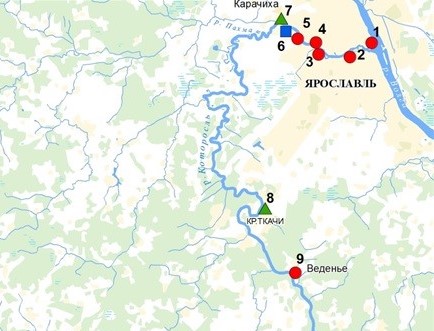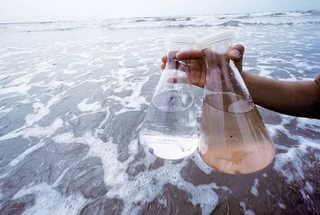Water Management and Health Risk-Based Planning
Annual growth of water consumption and expansion of the geographical space of environmental risks creates tension in the existing water management planning system. The issues of optimization of approaches to water management in the context of climatic and environmental tension, as well as increasing importance of water resources and priority global goals, show the relevance of this area.
Specialists of the Group of Companies “Resources and Consulting” implemented a project aimed at improving the effectiveness of the Kotorosl river basin management using a toolkit for human health risk assessment. Emphasis was put on the sanitary and chemical indicators, in particular the average monthly concentrations of the main controlled chemical toxicants. We carried out a multidisciplinary research, which included an analysis of the results of the seven-year full-scale studies of the water quality in the river Kotorosl, a procedure for assessing human health risk at the standard stages of the basic scheme (hazard identification, exposure assessment, dose-response assessment, risk characterization and uncertainty analysis), and statistical research methods, including multidimensional statistical analysis.
The results of the work made it possible to identify the significant (determining) chemical toxicants of the surface water of the river Kotorosl which characterize this or that risk zone and probably affect the population. Based on the peculiarities of the exposure, probable sources of pollutants in the river Kotorosl were determined, and the main environmental measures were outlined.
The possibility of including human health risks in water management planning shows their effectiveness as sensitive environmental indicators for identifying risk zones and justifying the priorities of water conservation; they also provide useful information for strategic basin management.



